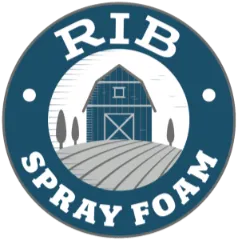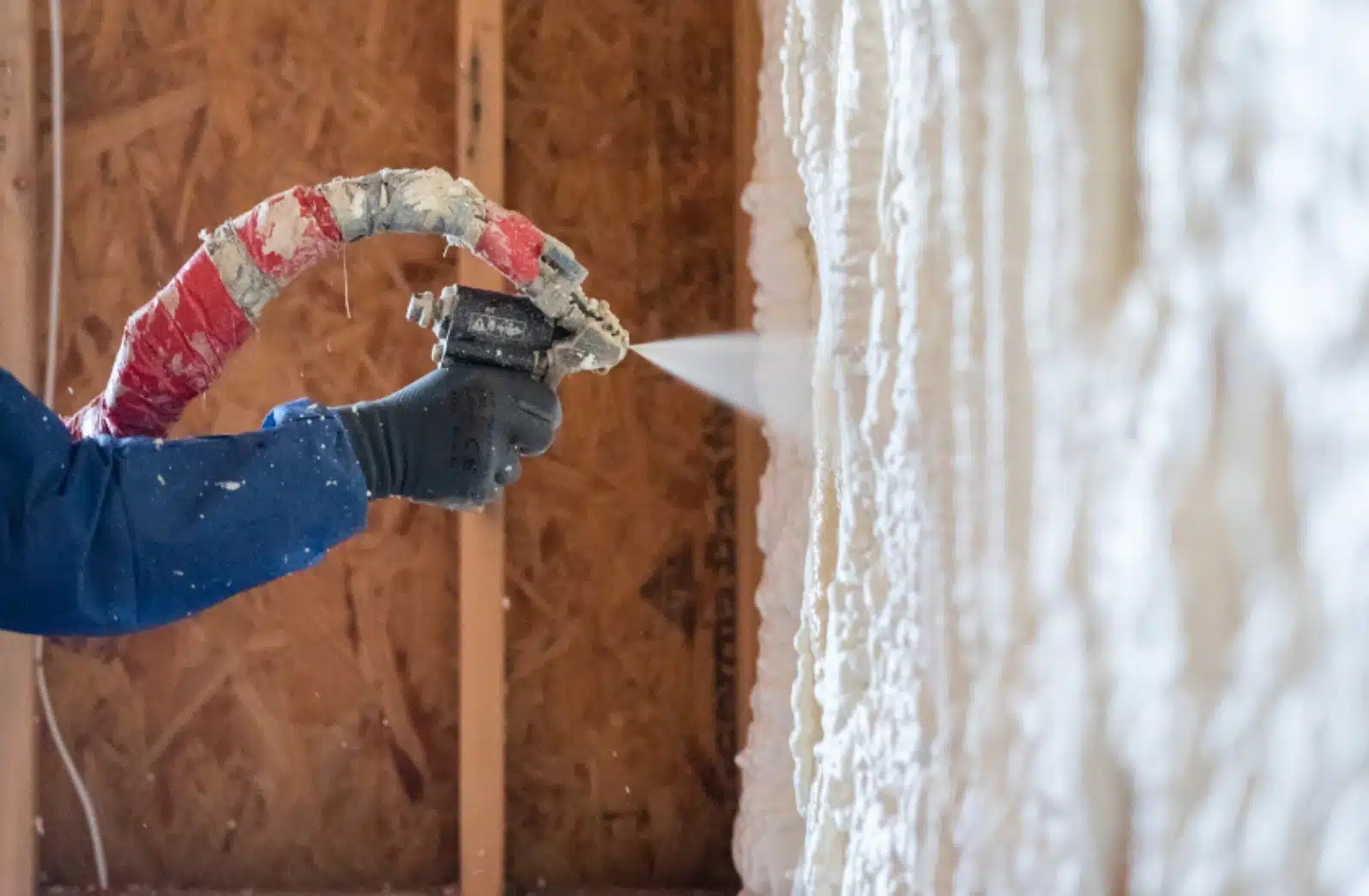Introduction
Choosing the right spray foam insulation can make a significant difference in energy efficiency, moisture resistance, and overall comfort. Homeowners and builders in Jefferson County, CO, often consider open-cell and closed-cell spray foam due to their effectiveness. Understanding the differences between these two options helps in making an informed decision based on climate, building structure, and budget.
Understanding Spray Foam Insulation
Spray foam insulation is a popular choice for both residential and commercial properties. It expands upon application, sealing gaps and providing excellent thermal resistance. The two primary types—open-cell and closed-cell—offer distinct benefits and performance characteristics.
Open-Cell Spray Foam
Open-cell spray foam is a lightweight insulation material with a spongy texture due to the presence of air pockets. This structure allows for flexibility and a high expansion rate, making it ideal for certain applications.
Key Features:
- Lower Density: Typically around 0.5 pounds per cubic foot.
- High Expansion: Expands up to 100 times its liquid volume, effectively sealing cracks and crevices.
- Sound Absorption: Reduces noise transfer between rooms and from outside sources.
- Cost-Effective: Generally more affordable than closed-cell spray foam.
- Vapor Permeability: Allows for moisture movement, reducing the risk of trapped condensation but requiring proper ventilation.
Ideal Applications:
- Interior walls for soundproofing.
- Attics and crawl spaces where vapor permeability is beneficial.
- Spaces where cost-efficiency is a priority.
Closed-Cell Spray Foam
Closed-cell spray foam is a denser, rigid insulation material with gas-filled cells that enhance thermal resistance. It offers superior strength and moisture resistance, making it suitable for a variety of environments.
Key Features:
- Higher Density: Around 2 pounds per cubic foot.
- Strong Structural Support: Enhances wall and roof integrity.
- Superior Insulation Value: Higher R-value (6 to 7 per inch) compared to open-cell (3.5 per inch).
- Water Resistance: Acts as a vapor barrier, reducing the risk of moisture infiltration.
- Long-Term Durability: Provides long-lasting insulation with minimal degradation.
Ideal Applications:
- Exterior walls and roofs exposed to varying temperatures.
- Basements and crawl spaces where moisture control is critical.
- Pole barns, garages, and commercial buildings requiring high R-value insulation.
Climate Considerations for Jefferson County, CO
Jefferson County experiences cold winters and warm summers, making insulation a key factor in energy efficiency. Homes in the region benefit from insulation that provides:
- Effective thermal resistance to reduce heating and cooling costs.
- Air sealing capabilities to prevent drafts and heat loss.
- Moisture management to combat seasonal humidity fluctuations.
Comparing Open-Cell and Closed-Cell for Local Climate
| Feature | Open-Cell | Closed-Cell |
|---|---|---|
| R-Value | ~3.5 per inch | ~6-7 per inch |
| Moisture Control | Allows vapor movement | Acts as vapor barrier |
| Structural Strength | Flexible | Rigid, adds durability |
| Cost | More affordable | Higher upfront cost |
| Soundproofing | High | Moderate |
| Expansion | Expands more | Expands less |
Making the Right Choice
- For budget-conscious homeowners, open-cell spray foam is a cost-effective choice for interior applications.
- For maximum energy efficiency and moisture protection, closed-cell spray foam is recommended, especially for basements, exteriors, and roofs.
- Hybrid approaches (using both types in different areas) can offer a balance between cost and performance.
Why Professional Installation Matters
Proper installation ensures that spray foam performs as expected. Common issues with DIY application include uneven expansion, improper curing, and potential off-gassing problems. Professional installers, like those at RIB Spray Foam, ensure that the insulation meets local building codes and achieves optimal performance.
The Importance of an Energy Assessment
Before selecting insulation, an energy assessment helps identify:
- Areas with the most heat loss.
- Structural considerations affecting insulation choice.
- Potential moisture concerns.
Contact RIB Spray Foam for Expert Advice
For homeowners and builders in Jefferson County, professional guidance can make all the difference. RIB Spray Foam specializes in high-quality spray foam insulation with expert installation. To discuss your project or request an estimate, contact:
- Phone: (970) 645-8077
- Email: [email protected]
Frequently Asked Questions (FAQs)
1. Which insulation type is better for my attic?
Open-cell spray foam is typically preferred for attics because of its expansive coverage and soundproofing properties. However, if moisture control is a concern, closed-cell may be a better option.
2. How does spray foam insulation affect energy bills?
Both open-cell and closed-cell spray foam reduce air leakage, leading to lower heating and cooling costs. Closed-cell provides the highest R-value per inch, offering maximum energy savings.
3. Is spray foam insulation safe for my home?
Yes, when professionally installed, spray foam insulation is safe and effective. Proper ventilation during installation ensures that any off-gassing dissipates before occupancy.
4. Does open-cell or closed-cell foam last longer?
Closed-cell foam has a longer lifespan due to its higher density and resistance to environmental factors. Open-cell foam is durable but may degrade faster in high-moisture areas.
5. Can spray foam insulation be used in existing homes?
Yes, spray foam can be applied in new and existing homes. It is particularly effective in retrofitting older buildings to improve energy efficiency.
6. Does spray foam insulation prevent mold growth?
Closed-cell spray foam resists moisture and can help prevent mold growth. Open-cell foam allows for moisture movement, which requires proper ventilation to avoid mold issues.
7. How much does spray foam insulation cost?
Costs vary depending on factors such as thickness, area size, and application type. Open-cell is generally more affordable, while closed-cell has a higher upfront cost but offers greater long-term benefits.
8. Can spray foam insulation be installed over existing insulation?
In some cases, it can be applied over old insulation, but removing outdated materials may provide better results. A professional assessment determines the best approach.
9. What happens if spray foam is not installed correctly?
Improper installation can lead to gaps, reduced effectiveness, and potential off-gassing issues. Hiring a professional ensures proper application and compliance with safety standards.
10. How do I know if my home needs better insulation?
Signs of poor insulation include high energy bills, uneven temperatures, drafts, and excessive noise transmission. An energy audit can help determine the best insulation upgrade for your home.



